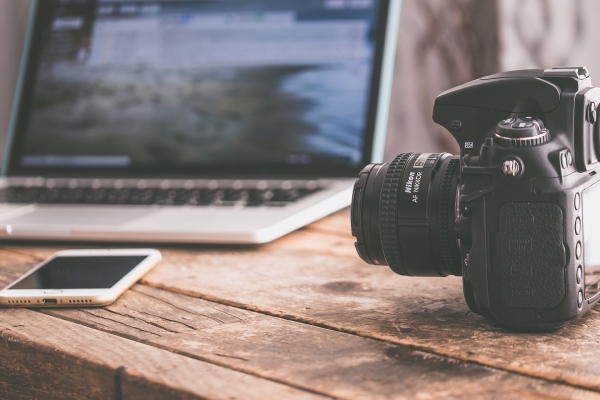How to keep your devices secure on your travels
You’ve bought your factor 30 and some new sun shades… but have you thought about the security of your devices when you leave the UK?
Whether you’re travelling on business or for fun, the chances are you’ll be taking a whole load of data along for the ride via your phone, tablet or laptop. And, of course, it’s not just that bottle of shampoo in your washbag that could leak.
So, here’s our advice to help you and your devices stay safe, including some official guidance from the Government’s National Centre for Cyber Security. You can also find valuable information about situations in specific countries with the Foreign Travel Advice service.
Before you go
If your devices belong to your employer, talk to your IT team or external consultant. It’s their job to advise you and minimise any risks to company information. And remember: if you can do without it, then don’t take it with you. It may be necessary for you to travel with sensitive information, in which case it’s crucial to see that these files are encrypted – if possible – and back them up at home.
Consider using a laptop and phone that are just for travel use and don’t have the usual online account details and other information linked. This is particularly good advice for if you are visiting high-threat countries.
Create new passwords for your devices before you set off, and make sure they are strong ones! Check that the security software on your laptop – anti-virus, firewall, encryption, host-based intrusion detection/prevention – is up-to-date and that your operating system and browser are the newest versions available.
Disable Bluetooth, NFC (near field communications) and your camera if you don’t need them, and consider deleting apps that aren’t completely necessary. Some travellers also put tamper-proof stickers on screw holes and other strategic places on laptops and smartphones to help deter or detect problems – you can never be too careful!
When you’re travelling
Carry your devices with you on the plane and don’t leave them unattended or out of sight. Be very wary if any USB drives are given to you as they may be compromised – for the same reason, don’t connect your own USB drive to any other computer, even if it belongs to someone you know and trust. If you do, you should assume your device is compromised and seek professional IT advice as soon as you can.
Are you using your devices in a public place? If so, be aware of who is looking at your screen. We’ve previously explored the dangers of coffee shop working, and the same rules apply here – avoid public WiFi networks that might not be secure and, as ever, don’t open emails with attachments from people you don’t know.
Finally, make sure your computer is shut down and not in “sleep” or “hibernation” mode before you reach customs.
If there’s a problem
If you suspect that your devices have been tampered with, or encounter any problems during or after your trip, don’t report it to local officials. Instead, tell your organisation’s security specialist immediately and once you’re back in the UK, change your passwords again – whether or not you think you have encountered any threats.
Want to talk about device security overseas? Contact us to see how our experts can help.



